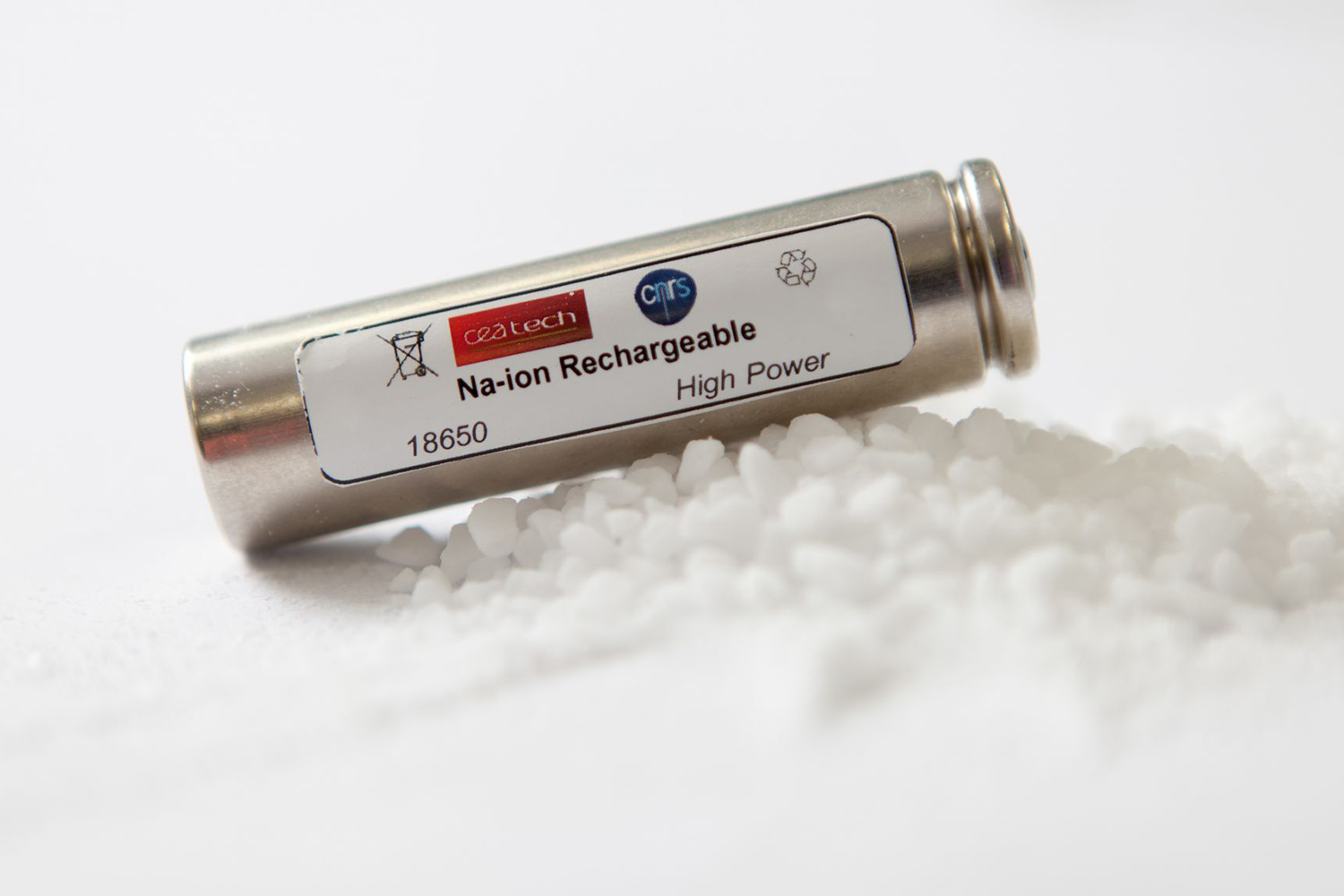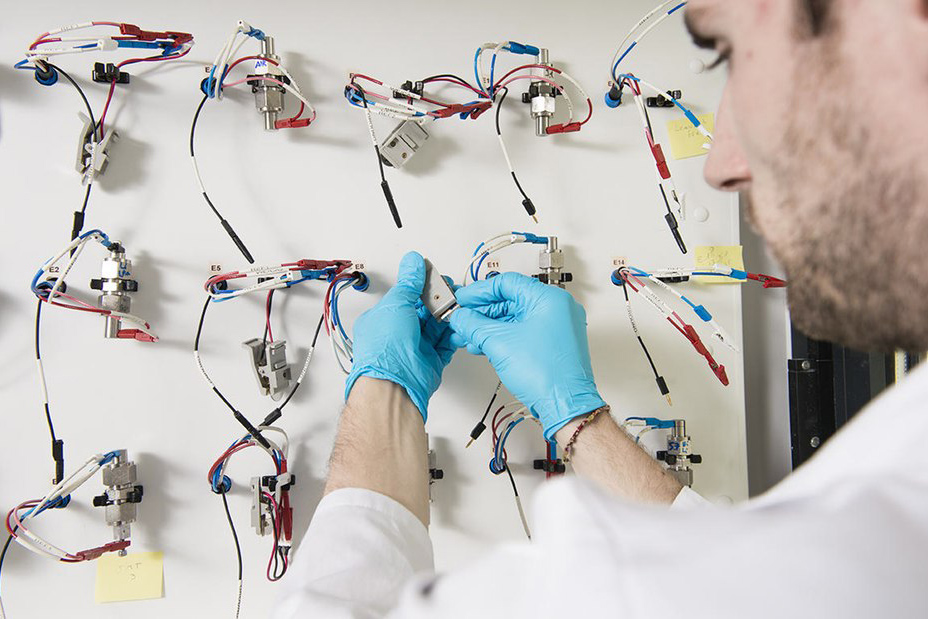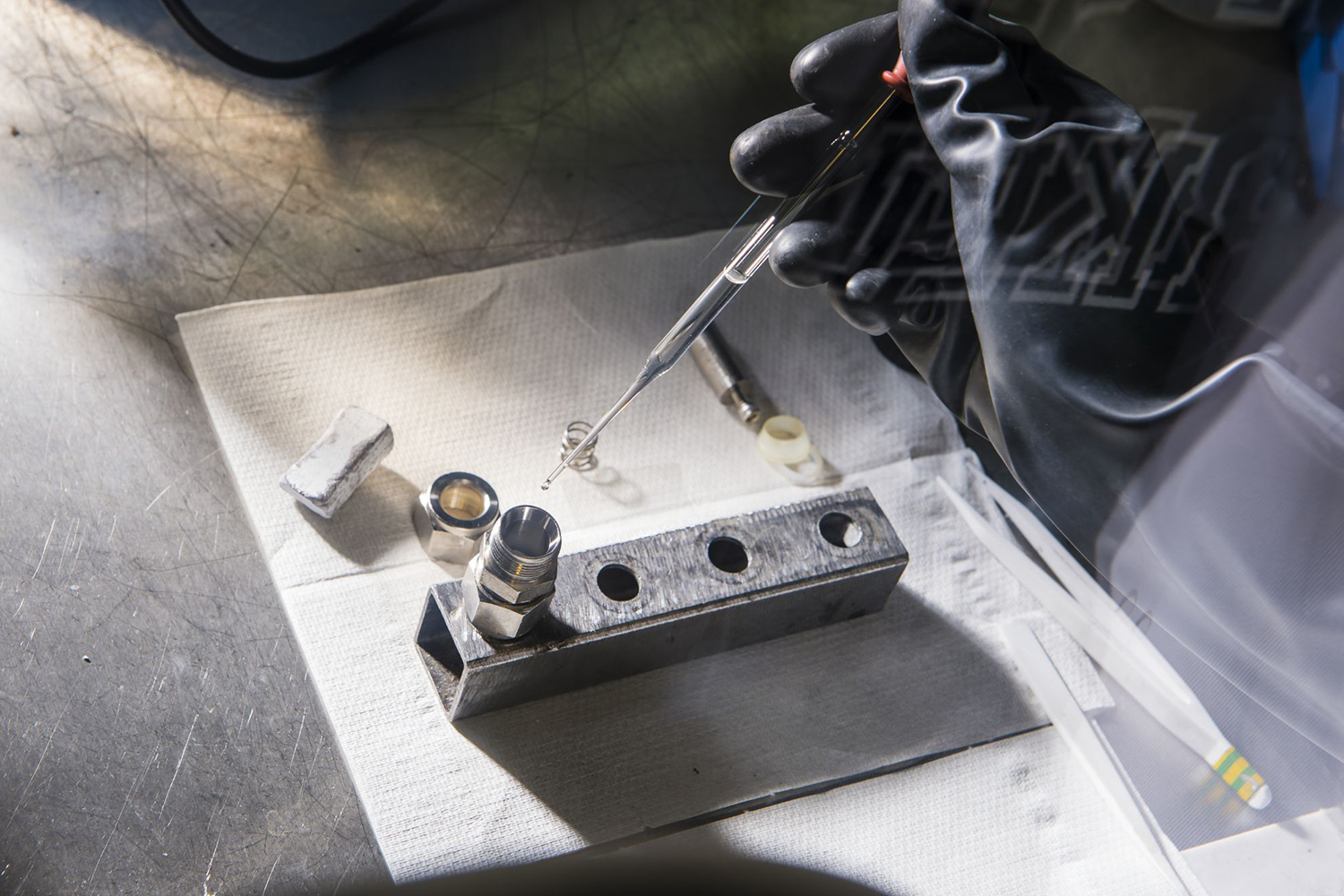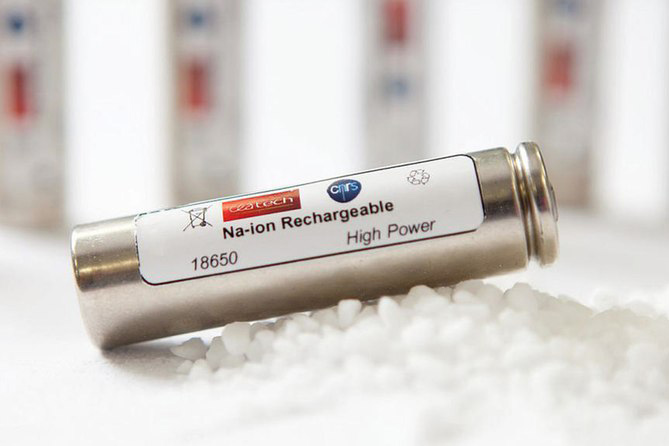The rechargeable battery that powers your laptop, tablet, and mobile phone is almost certainly powered by a lithium ion battery. The problem: there’s not a lot of lithium on our planet. Sodium, on the other hand, is so plentiful that you sprinkle sodium-chloride on your food without even thinking about it (but you probably just call it salt).
Sodium is one thousand times more abundant on earth than lithium, and lithium-ion batteries are in countless devices. So switching from lithium-ion batteries to sodium-ion could lead to cost savings in a wide variety of consumer projects, from Teslas to tablets.
This is why researchers have been trying to develop such a battery for decades, but this week’s news marks the first time such a battery was built in the “18650” industry standard used by laptop computers and other devices today.
Six labs worked together to find the ideal “recipe” for the cathode of the battery. Researchers at the CEA (Commissariat à l’énergie atomique et aux énergies alternatives) were eventually able to work out something that closely resembles the batteries in your laptop, which is a first.
Work was also done to move the process of making this cathode to the “pre-industrial” scale, meaning producing kilograms instead of just a few grams. There’s been progress, and the resulting batteries are among the best-performing sodium-ion units ever seen.
The energy density is as high as 90 watt-hours per kilogram, which is comparable to very early lithium ion batteries, though behind what’s currently available. That is the rub, currently. Because of the energy density, these batteries have to be relatively heavy and large to provide enough power. Researchers hope refining the idea will reduce this problem.
There’s a lot of work to be done yet, but if the research goes well, it’ll lead to batteries that are less expensive and easier on our environment.






